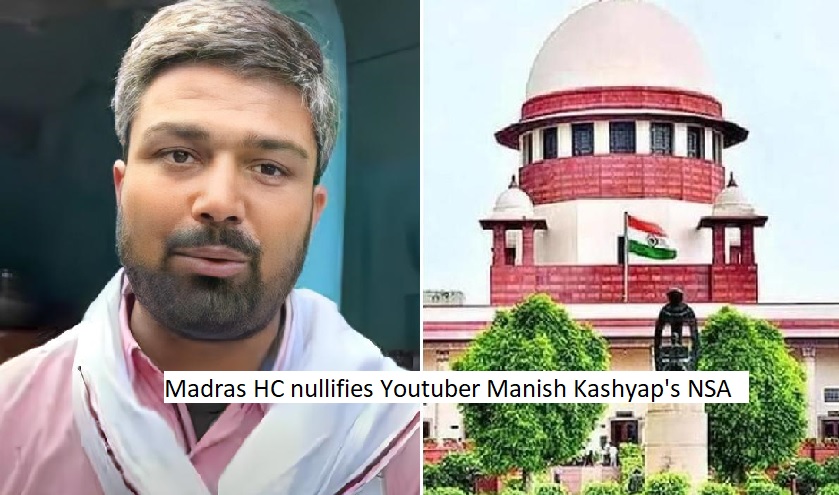


The Madras High Court delivered a significant verdict on Friday by quashing the detention order imposed on YouTuber Manish Kashyap under the National Security Act (NSA). The detention was related to allegations of circulating fake videos depicting migrant workers from Bihar being attacked in Tamil Nadu. The Madurai bench, comprising Justice M Sundar and Justice R Sakthivel, not only annulled the proceedings under the NSA but also allowed the continuation of proceedings under the Information Technology Act.
The legal saga began in March when a complaint was filed regarding a fake video that claimed migrant workers were facing assaults in Tamil Nadu, raising concerns about their safety in the state. In response, the Madurai District Cyber Crime Police registered a case under various sections of the Indian Penal Code (IPC) and Section 66D of the Information Technology Act, 2000. The complaint triggered a series of legal actions against Kashyap.
Attempting to challenge the detention order and consolidate all FIRs filed against him in Bihar and Tamil Nadu, Kashyap approached the Supreme Court. However, the apex court, led by Chief Justice of India DY Chandrachud, Justice PS Narasimha, and Justice JB Pardiwala, declined to entertain his pleas. Instead, the Supreme Court granted him the liberty to seek relief from the High Court.
When the question of invoking the NSA against Kashyap arose, Senior Advocate Kapil Sibal, representing the State of Tamil Nadu, argued that Kashyap's substantial social media following, exceeding six lakh followers, led to widespread alarm and panic among the migrant labor community. This claim formed the basis for considering the necessity of invoking the stringent National Security Act.
In response, Kashyap's brother, Tribhuwan Kumar Tiwari, approached the Madras High Court through a habeas corpus petition, seeking to quash the detention order. Advocate Niranjan S. Kumar, representing Tiwari, informed the court that his client had been granted default bail under Section 167(2) of the Code of Criminal Procedure (CrPC) in all six cases registered against him in Tamil Nadu.
Moreover, Kumar argued that the grounds of the detention order relied on the remand order in the base case. However, neither a copy of the remand order nor the order of the extension of remand was provided to Kashyap. Additionally, Kumar emphasized that the grounds made reference to bail in a previous case, which had no connection to the present situation.
The Madras High Court, in its ruling, observed procedural irregularities in the detention process. The court pointed out that authorities had not followed due procedure while invoking the NSA against Kashyap. Consequently, the High Court quashed the NSA detention but allowed proceedings under the Information Technology Act to proceed.
The decision underscores the importance of adherence to legal procedures, even in cases that involve national security concerns. The court's emphasis on due process reinforces the fundamental principles of justice and serves as a reminder that legal actions, especially those with serious implications like NSA detentions, must be executed meticulously to safeguard individual rights. Kashyap's legal journey, marked by the interplay of national security and freedom of expression, reflects the complexities and challenges faced in balancing these essential aspects of a democratic society.
TAGS: Madras High Court NSA detention YouTuber Manish Kashyap Fake videos Migrant workers Bihar Tamil Nadu Information Technology Act Legal proceedings